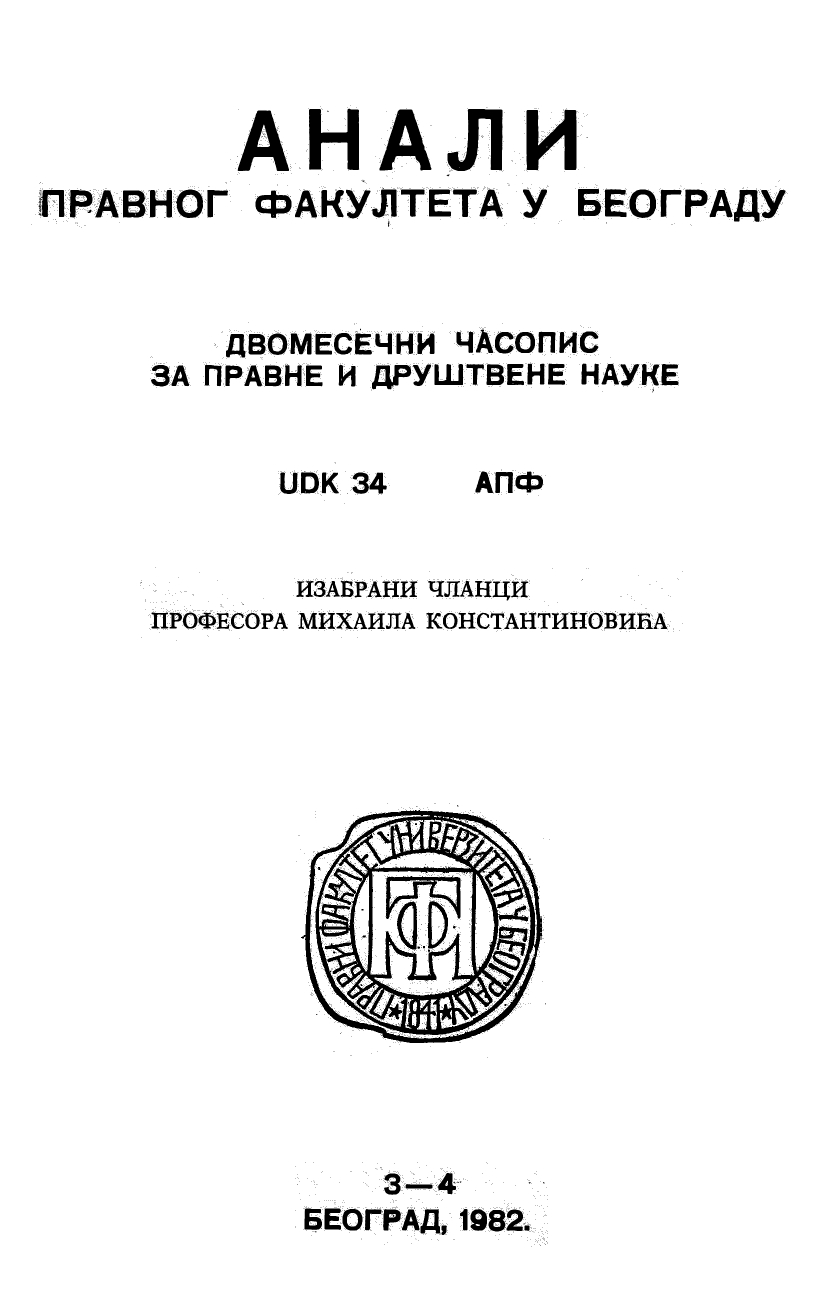ОЗНАЧАВАЊЕ ЗАКОНА
DESIGNATION OF LAW
Author(s): Mihailo KonstantinovićSubject(s): Law, Constitution, Jurisprudence
Published by: Правни факултет Универзитета у Београду
Summary/Abstract: Having determined the huge practical significance of the method of designation of law, the author goes on to examine the advantages and faults of the methods used in history and comparative law. In the article, the following methods of designation «of law are identified : a) the Roman, where the law had been given the family name of the magistrate — its; creator; b) the old French method, by the name of the city in which the law had been passed; c) the Greek, by the ordinal number; d) most often, by the date of passing of the law, in France; e) the Hungarian, where laws are designated by a combination of ordinal number, date of passing, and the title; this last method, according to the author,, is characteristic of recent practice in Serbia. Choosing the method of designation by the date of passing of the law as the most appropriate the author «also points to the potential misunderstandings arising form the reference to various dates as the competent ones, namely, the date of passing in the Assembly, the date of approval by the Head of State, the date of public announcement (publishing) of the law. It is for these reasons that the author is in favour of the «passing of a special law, which would determine the moment in which the law in question should be designated, while during the period until then, he suggests that method used should be the designation by the date and the title (name) given to« it by the legislator.
Journal: Анали Правног факултета у Београду
- Issue Year: 30/1982
- Issue No: 3-4
- Page Range: 294-307
- Page Count: 14
- Language: Serbian

